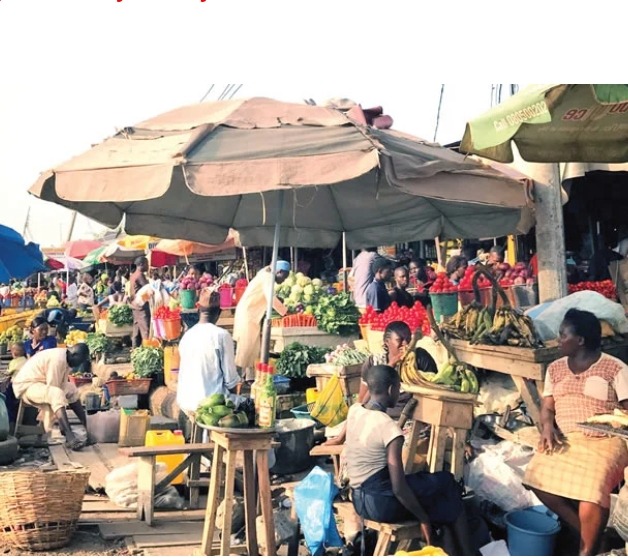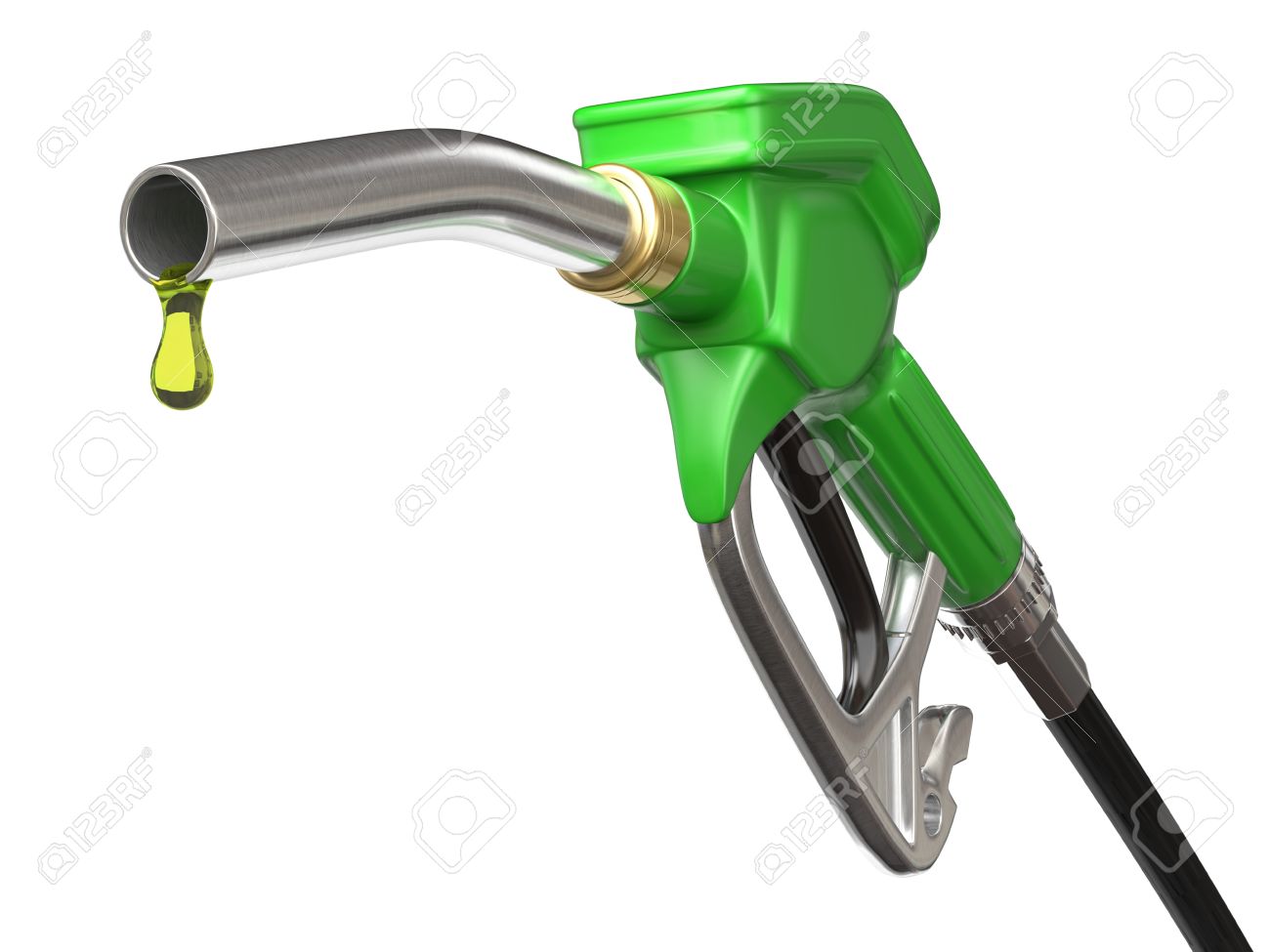Business
Nigerian Economy Shrinks By N63bn, 28 Sectors Struggle

Twenty-eight sectors of the economy declined in the second quarter of 2022 as real Gross Domestic Product shrunk by N63.49bn quarter-on-quarter.
While real GDP grew by 3.54 per cent year-on-year in Q2 2022, it declined by 0.37 per cent from the N17.35tn that was recorded in the first quarter of 2021 to N17.29tn in Q2, 2022, according to data from the National Bureau of Statistics, NBS.
The NBS blamed this decline on lower economic activity that was witnessed in Q1 2021. The analysis of real GDP data revealed that only 18 of the 46 NBS captured economic activity sectors experienced growth in the quarter under review.
READ ALSO: Nigerian Govt Plans N19.76trn Budget For 2023
According to the data from the statistics body, the agriculture sector witnessed mixed positives, with two sub-sectors witnessing growth and the other two recording a decline. Crop production grew from N3.39tn to N3.59tn; livestock declined from N318.49bn to N282.02bn; forestry grew from N44.14bn to N51.28bn; while fishing declined from N125.46bn to N88.3bn.
In the mining and quarrying sector, crude petroleum and natural gas declined from N1.15tn to N1.09tn; coal mining grew from N1.61bn to N4.79bn; metal ores declined from N4.87bn to N1.26bn; and quarrying other minerals grew from N363.29m to N25.51bn.
The 2022 has been a tough year for the manufacturing sector with inflation and foreign exchange scarcity negatively impacting growth. Only three of the 13 subsectors in the manufacturing sector recorded any growth in the quarter under review.
Oil refining grew from N1.66bn to N2.82bn; cement declined from N188.81bn to N143.74bn; food, beverage and tobacco declined from N875.94bn to N760.08bn; textile, apparel, and footwear declined from N342.48bn to N283.34bn; wood and wood products declined from N53.81bn to N44.41bn; whereas pulp, paper, and paper products declined from N13.38bn to N9.70bn.
Chemical and pharmaceutical products grew from N42.75bn to N47.37bn; non-metallic products declined from N63.52bn to N49.24bn; plastic and rubber products declined from N60.12bn to N53.01bn; electrical and electronics increased from N839.34m to N921.50m; basic metal, iron and steel declined from N39.93bn to N37.31bn; motor vehicles and assembly declined from N9.53bn to N7.63bn; and other manufacturing declined from N76.07bn to N55.55bn
The electricity, gas, steam and air conditioning supply sector grew from N32.72bn to N118.79bn. The water supply, sewerage, waste management and remediation sector grew from N39.06bn to N61.12bn. Construction declined from N725.99bn to N554.11bn. The trade sector grew from N2.79tn to N2.91tn.
Accommodation and food services also recorded a decline from N173.41bn to N68.17bn. Under the transportation and storage sector, road transport grew from N151.97bn to N293.85bn; rail transport and pipelines declined from N40.96m to 19.92m; water transport increased from N802.77m to N1.04bn; air transport declined from N25.26bn to N9.69bn; transport services grew from N7.11bn to N11.14bn; and post and courier services declined from N6.26bn to N2.42bn.
Seen as one of the bright spots of the economy, telecommunications and information services under the information and communication sector grew from N2.25tn to N2.59tn; publishing declined from N5.45bn to N4.66bn; motion pictures, sound recording and music production declined from N229.67bn to N157.57bn; and broadcasting grew from N330.47bn to N433.43bn.
The arts, entertainment and recreation sector declined from N35.69bn to N51.85bn. In the financial and insurance sector, the financial institutions subsector declined and insurance declined from N85.11bn to N80.18bn.
The real estate sector was one of the sectors that shrunk, declining from N927.32bn to N920.49bn. The professional, scientific and technical services sector fell from N560.47bn to N525.94bn; administrative and support services grew from N3.39bn to N3.54bn; public administration also grew from N283.59bn to N375.59bn, but education fell from N333.06bn to N231.85bn.
While the other services sector declined from N702.74bn to N473.72bn, the human health and social services sector increased from N126.01bn to N131.28bn.
According to Associate Professor of Economics at the Pan Atlantic University, Olalekan Aworinde, real GDP was the true reflection of the economic status of a country.
He said, “Nominal GDP is the market value of goods and services produced at a particular period. Real GDP is when you have the nominal GDP, and inflation factored in. It is the nominal GDP indexed with inflation.”
READ ALSO: Debt Servicing Gulps N13.17tn Under Buhari, Education Suffers
In a statement addressing the general GDP, the Founder /Chief Executive Officer, Centre for the Promotion of Private Enterprise, Dr Muda Yusuf, disclosed that productivity and competitiveness issues had continued to negatively impact performance across sectors of the economy.
He stated that the general operating environment of the nation was also very challenging for most investors, with SMEs particularly more vulnerable to prevailing macroeconomic shocks, resulting in high mortality rate for small businesses.
He said, “Many businesses are struggling to cope with the numerous challenges and shocks to the economy. On the welfare front, the citizens are also experiencing serious economic hardship as a result of the galloping inflation and the impact on purchasing power.”
PUNCH
Business
Naira Extends Appreciation Against US Dollar

The naira extended appreciation against the dollar at the official foreign exchange market on Wednesday.
The Central Bank of Nigeria’s data showed that the Naira further firmed up on Wednesday to N1,418.26 per dollar, up from N1,419.07 exchanged on Tuesday.
Wednesday’s uptrend represents a slight N0.80 gain against the dollar on a day-to-day basis.
READ ALSO:Naira Records Significant Appreciation Against US Dollar
Meanwhile, at the black market, the Naira remained unchanged against the dollar at N1,480 per dollar on Wednesday, the same rate recorded the previous day.
The development comes as Nigeria’s foreign reserves further rose to $45.62 billion as of January 6th, 2026.
Recall that on Tuesday, the Naira posted a N10.24 gain against the dollar.
Business
Naira Continues Gain Against US Dollar As Nigeria’s Foreign Reserves Climb To $45.57bn

The Naira appreciated further against the United States Dollar at the official foreign exchange market, beginning the week on a good note.
Central Bank of Nigeria data showed that the Naira strengthened on Monday to N1,429.31 per dollar, up from N1,430.85 exchanged on Friday, 2 January 2026.
This means that the Naira gained N1.56 against the dollar on Monday when compared to N1,430.85 last week Friday.
READ ALSO:Naira Records Significant Appreciation Against US Dollar
At the black market, the Naira dropped by N5 to N1480 per dollar on Monday, down from N1475 traded Friday.
The development comes as the country’s external reserves rose to $45.57 billion as of Friday last week.
Business
NNPCL Reduces Fuel Price Again

The Nigerian National Petroleum Company Limited, NNPCL, has again reduced its premium motor spirit price.
In Abuja, on Monday morning, it was gathered that NNPCL retail outlets have reduced their fuel price to N815 per liter, down from N835.
This means that the NNPCL filling stations cut their price by N20.
The fresh price has been implemented at NNPCL filling stations in Wuse Zone 6 and 4 Abuja, Keffi-Abuja Road, and Kubwa Expressway.
READ ALSO:Fuel Price Cut: NNPCL GCEO Ojulari Reveals Biggest Beneficiaries
An NNPCL filling station attendant, who preferred anonymity, told DAILY POST that the new price was implemented on Sunday evening.
However, the N815 per liter is N79 higher than the N739 per liter sold at Dangote Refinery’s backed MRS filling stations nationwide.
DAILY POST recalls that NNPCL on December 19, 2025, cut its price of petrol by N80 to N835 amid a price war among players in the country’s oil downstream sector triggered by Dangote Refinery’s gantry price reduction to N699 per liter.

 News4 days ago
News4 days agoWhat I Saw After A Lady Undressed Herself — Pastor Adeboye

 Headline4 days ago
Headline4 days agoPROPHECY: Primate Ayodele Reveals Trump’s Plot Against Tinubu

 Metro4 days ago
Metro4 days agoArmed Robbers Shot PoS Operator To Death In Edo

 Metro3 days ago
Metro3 days agoAAU Disowns Students Over Protest

 Business3 days ago
Business3 days agoNNPCL Reduces Fuel Price Again

 Metro4 days ago
Metro4 days agoJoint Task Force Kills 23 Bandits Fleeing Kano After Attacks

 Politics4 days ago
Politics4 days ago2027: Rivers APC Pledges To Follow Wike’s Instructions

 Metro3 days ago
Metro3 days agoEdo: Suspected Kidnappers Kill Victim, Hold On To Elder Brother

 Metro3 days ago
Metro3 days agoNine Soldiers Feared Dead In Borno IED Explosion

 Entertainment4 days ago
Entertainment4 days agoAnthony Joshua Returns To UK In Private Jet






























